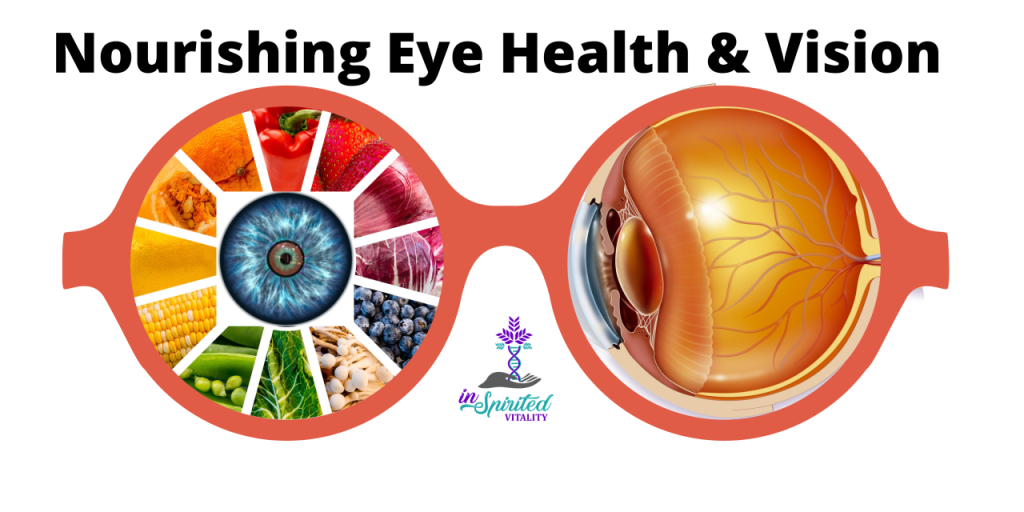
Introduction:
Our eyes are our windows to the world, allowing us to appreciate its beauty and intricacies. Just like the rest of our bodies, our eyes require proper nutrition to function at their best. In this article, we will delve into the nutrients crucial for maintaining good vision, exploring how they support eye health. So, get ready to indulge in some eye-opening knowledge as we uncover the secrets to nourishing your eyes.
The Anatomy of the Eye and the Role of Nutrition:
The journey of light begins with the cornea, passes through the pupil and lens, and finally reaches the retina, where it converts into electrical signals for the brain to interpret. Each component of the eye can be influenced by nutrition. A diet lacking essential nutrients may lead to vision problems, while a balanced diet rich in specific nutrients can support and maintain good eye health. By embracing nutritious choices, we can prevent various eye diseases and maintain healthy vision as we age.
Nutritional Superheroes for Your Eyes:
To prioritize eye nutrition in your dietary decisions, let’s shed light on key vitamins and minerals that deserve a spot on your plate.

- Vitamin A:
Known as the “eye superhero,” Vitamin A plays a vital role in maintaining sharp and clear vision. It protects the corneas and conjunctival membranes and contributes to the formation of rhodopsin, a protein that enables our retinas to absorb light. Carrots, sweet potatoes, spinach, and kale are excellent sources of beta-carotene, a form of Vitamin A easily utilized by our bodies. - Lutein and Zeaxanthin:
These powerful antioxidants reside in our retinas, acting as natural shields against potentially harmful light, including blue light from screens. Consuming lutein and zeaxanthin-rich foods like leafy green vegetables (spinach, kale) and egg yolks can help reduce the risk of macular degeneration and cataracts. - Vitamin C:
As a potent antioxidant, Vitamin C plays a crucial role in collagen production. Sustaining adequate levels of Vitamin C in your diet protects against cataracts, promotes blood vessel health, and guards against age-related macular degeneration. Oranges, strawberries, and bell peppers are fantastic sources of this vitamin. - Omega-3 Fatty Acids:
Essential for visual development and retinal function, omega-3 fatty acids also alleviate dry eyes caused by inadequate tear production. Include foods such as fatty fish (salmon, tuna), flaxseeds, chia seeds, and walnuts in your diet to benefit from these helpful fats. - Selenium:
This essential mineral works with antioxidant enzymes to prevent oxidative stress in our eyes. By shielding against oxidative damage, selenium helps prevent cataracts and age-related macular degeneration. Brazil nuts, seafood, eggs, and brown rice are good sources of selenium. - Zinc:
Zinc is a key player in transporting Vitamin A from the liver to the retina, creating melanin, a protective pigment in the eyes. Maintaining sufficient zinc levels is crucial for good vision, including night vision. Beef, oysters, lobster, pork, and baked beans are rich in zinc.
Life Choices: Beyond Nutrition:

While a nutrient-dense diet is crucial, other factors contribute to optimal eye health. Regular exercise improves blood circulation and toxin removal, while avoiding smoking and limiting alcohol consumption protects your vision. Hydration is equally important for overall eye health.
Conclusion:
Nutrition plays a vital role in maintaining healthy eyes. However, it is just one aspect of a larger puzzle. Regular eye check-ups, proper eye protection, and a healthy lifestyle complement a nutritious diet in preserving your vision. Let’s commit to feeding our eyes right, allowing us to savor life’s visual delights for years to come. Your eyes will undoubtedly thank you for it!


